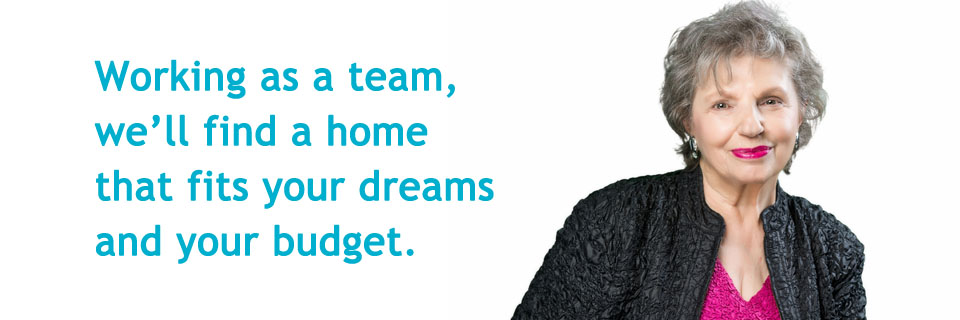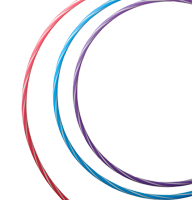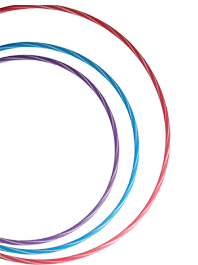
- How much can you afford?
- First-Time Home Buyers’ (FTHB) Tax Credit
- Closing costs
- Mortgage Glossary of Terms
How much can you afford?
Obtaining a pre-approval mortgage will give you the confidence of knowing exactly what you can spend on a home before you start looking. You will also be protected against interest rate increases while you look for your new home.
Pre-Qualification: Establishes how much you can afford to borrow, based on how much you earn and owe. Don’t be disappointed though. Pre-qualification is not an assurance of mortgage approval.
Pre-Approval: Is a detailed approach that can give you a firm decision on a home loan which makes you a “cash buyer” in the seller’s eyes. You may be wise to ensure that you obtain pre-approval even before you start your home search.
Bargaining Power
Pre-approved buyers have increased bargaining power with the seller as they are perceived as serious buyers and bring to the table a certain level of credibility. Quick decisions can be made which is attractive to the seller especially in a multiple offer situation, potentially placing your offer to buy in a “first choice” position.
 Before You Start House Hunting:
Before You Start House Hunting:
- Establish how much cash (or down payment) is needed and how much you can afford to carry in monthly payments. Monthly housing costs (mortgage principal and interest, taxes, heating and half the condo fees if applicable) shouldn’t be more than 32% of your gross monthly income.
- Add approximately $3000 to $5000 your budget for items over and above cash down payment.
- We recommend that you not look at homes out of your afforded price range. It will only frustrate you and waste your time.
Documents Needed for Mortgage Approval
- Notice of Assessment from previous taxation year
- Letter from Employer confirming annual income and length of employ
- T4 Slips and/or Income Tax Returns
- Verification of Down Payment funds- copy of bonds, investment certificates, bank books.
- A copy of the real estate listing of the property with exterior photo. If the home is still to be built, the mortgage lender will need to see the architect’s or builder’s plans and details on lot size and location.
- A copy of the accepted offer to purchase or the building contract, if this document has already been prepared.
Types of Mortgages
Conventional Mortgage
- Down Payment of 20% or more.
- No CMHC insurance premium.
High Ratio Mortgage
If the first Mortgage exceeds 80% of the purchase price, you must obtain mortgage loan insurance through the CMHC (Canada Mortgage and Housing Corporation) or Genworth.
The premium rate is determined by the percentage the mortgage is of the selling price
| 75% to 80% | 1.25% |
| 80% to 85% | 1.8% |
| 85% to 90% | 2.40% |
| 90% to 95% | 3.60% |
First-Time Home Buyers’ (FTHB) Tax Credit
The costs associated with purchasing a home, such as legal fees, disbursements and land transfer taxes, can be a particular burden for first-time homebuyers who must pay these costs, as well as save money for a down payment. To assist first-time homebuyers with these costs, the Government of Canada introduced a FTHB Tax Credit — a $5,000 non-refundable income tax credit amount on a qualifying home. For an eligible individual, the credit will provide up to $750 in federal tax relief. http://www.cra-arc.gc.ca/vdgllry/wtchds/menu-eng.html?clp=ndvdls/hmbyrs-eng/
The Ontario Government also provides up to $4,000 off the Land Transfer Tax that every buyer pays when purchasing a home. If, for example, you purchase a home for $350,000, the Land Transfer Tax would be $3,725, therefore you end up paying zero!
Expansion of the Home Buyers’ Plan (HBP)
To provide first-time homebuyers with greater access to their RRSP savings to purchase or build a home, the Government of Canada has increased the Home Buyers’ Plan withdrawal limit to $25,000 from $20,000 per person for withdrawals made after January 27, 2009. http://www.cra-arc.gc.ca/tx/ndvdls/tpcs/rrsp-reer/hbp-rap/menu-eng.html. To obtain more information on the First-Time Home Buyers’ Tax Credit and the Home Buyers’ Plan, call 1-800-959-8281 or visit the Canada Revenue Agency website at www.cra.gc.ca.
Closing Costs
When I bought my first home, I was shocked to learn that there were closing costs over and above the cost of the home.
These costs could include items such as the building and other inspections, appraisal fees, mortgage insurance, CMHC fees, legal fees, transfer tax, title insurance, taxes, and disbursements. Following are estimated costs.
Land Transfer Tax
You, the buyer, must pay this tax. Rates are as follows for a single family residence
| Purchase Price | Land Transfer Tax |
| 0‐$55,000 | 0.5% |
| $55,001‐$250,000 | 1% less $275.00 |
| $250,001‐$400,000 | 1.5% less $1525.00 |
| $400,001– and up | 2.0% less $3525.00 |
Example: To calculate the land transfer tax on a purchase price of $275,000, multiply the purchase price by 1.5% and deduct $1,525 ($4,125 – $1,525 = $2,600)
Disbursements
These disbursements are costs incurred on your behalf by your lawyer for various searches, certificates and registrations. If required, you will have to budget for items such as your share of the annual taxes, any fuel left in a tank, mortgage interest adjustment, Ontario New Home Warranty Plan fee, etc. These range from around $675 to $875, depending on the complexity of the closing.
Building Inspection
Most financial mortgage institutions now require a Buyer to produce a recent survey for the real property being purchased showing the boundaries of the lands and the location of the dwelling thereon. The price varies depending on the complexity of the survey, but a basic residential one runs around $375 to $500 and $275 to $400 for a condo.
Title Insurance
This insurance will take care of the problems incurred in the absence of a survey or an up to date survey which could cost around around $1500. It is highly recommended that title insurance be obtained in the absence of a survey. Cost is about $350.
Mortgage Insurance
As per the CMHC rate schedule, if your first mortgage is over 80% of the purchase price.
Household Homebuying Cost Calculators
Use this Homebuying Calculators to realistically see how much it costs to manage a house.
DON’T FORGET to budget for other costs, such as moving.
Mortgage Glossary of Terms
Amortization Period The actual number of years it will take to pay back your mortgage loan.
Amortization Repayment of a loan in equal installments of principal and interest, rather than interest-only payments.
Appraised Value An estimate of the value of the property. Conducted for the purpose of mortgage lending by a certified appraiser. This appraisal is not to be confused with a building inspection.
Assumability / Assumption of Mortgage Allows the buyer to take over the seller’s mortgage on the property.The buyer’s agreement to assume the liability under an existing note that is secured by a mortgage. The lender usually must approve the buyer in order to release the original borrower (usually the seller) from liability.
Cap The limit on how an interest rate or monthly payment can change, either at each adjustment or over the life of the mortgage.
Closed Mortgage A mortgage that locks you into a specific payment schedule. A penalty usually applies if you repay the loan in full before the end of a closed term.
Condominium Fee A common payment among owners which is allocated to pay expenses.
Conventional Mortgage A mortgage loan issued for up to 75% of the property’s appraised value or purchase price, whichever is less.
Down Payment The buyer’s cash payment toward the property. The difference between the purchase price and the amount of the mortgage loan.
Equity The difference between the home’s selling value and the debts against it.
High-Ratio Mortgage A mortgage that exceeds 75% of the home’s appraised value. These mortgages must be insured for payment.
Interest Rate The value charged by the lender for the use of the lender’s money. Expressed as a percentage.
Land Transfer Tax, Deed Tax or Property Purchase Tax A fee paid to the municipal and /or provincial government for the transferring of property from seller to buyer.
Maturity Date The end of the term, at which time you can pay off the mortgage or renew it.
Mortgagee The person or the financial institution that lends the money.
Mortgage Insurance Applies to high-ratio mortgages. It protects the lender against loss if the borrower is unable to repay the mortgage.
Mortgage Life Insurance Pays off the mortgage if the borrower dies.
Mortgagor The borrower.
Open Mortgage Allows partial or full payment of the principal at any time, without penalty.
Portability A mortgage option that enables borrowers to take their current mortgage with them to another property, without penalty.
Pre-Approved Mortgage Qualifies you for a mortgage before you start shopping. You know exactly how much you can spend and are free to make a “firm” offer when you find the right home.
Prepayment Privileges Voluntary payments in addition to regular mortgage payments.
Principal The amount borrowed or still owing on a mortgage loan. Interest is paid on the principal amount.
Refinancing Paying off the existing mortgage and arranging a new one or re-negotiating the terms and conditions of an existing mortgage.
Renewal Re-negotiation of a mortgage loan at the end of a term for a new term.
Second Mortgage Additional financing. Usually has a shorter term and higher interest rate than the first mortgage.
Term The length of time the interest rate is fixed. It also indicates when the principal balance becomes due and payable to the lender.
Title Legal ownership in a property.
Variable-Rate Mortgage A mortgage with fixed payments, but fluctuates with interest rates. The changing interest rate determines how much of the payment goes towards the principal.
Vendor Take-Back Mortgage When the seller provides some or all of the mortgage financing in order to sell their property.
